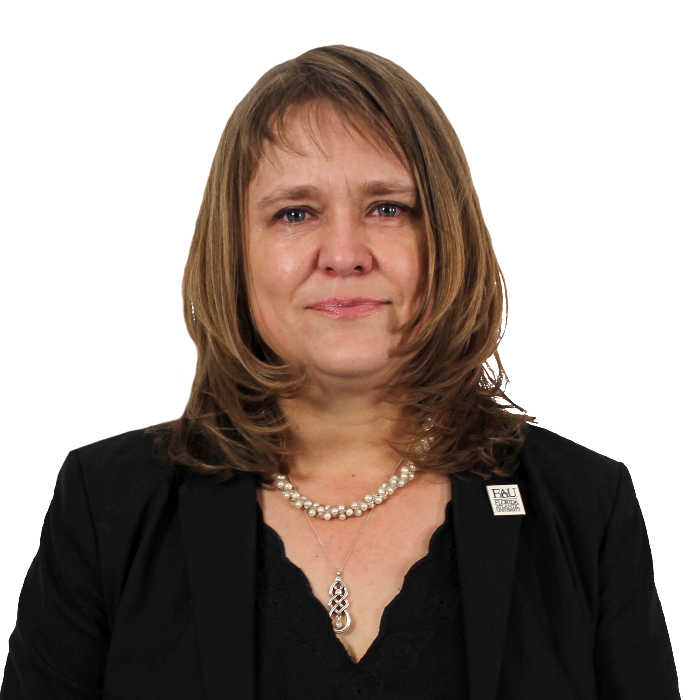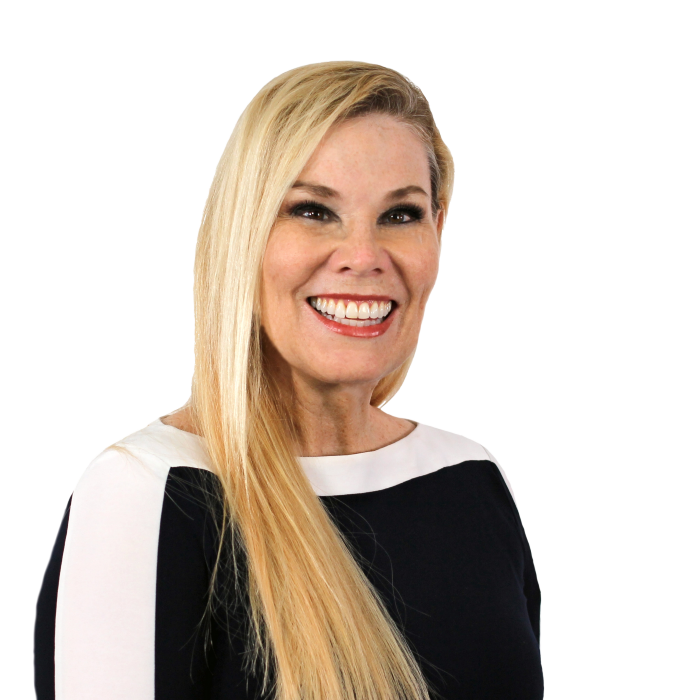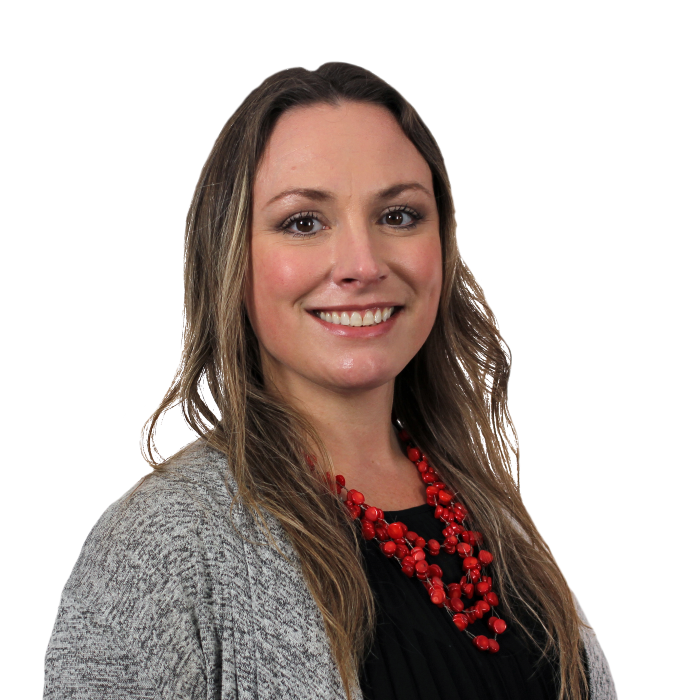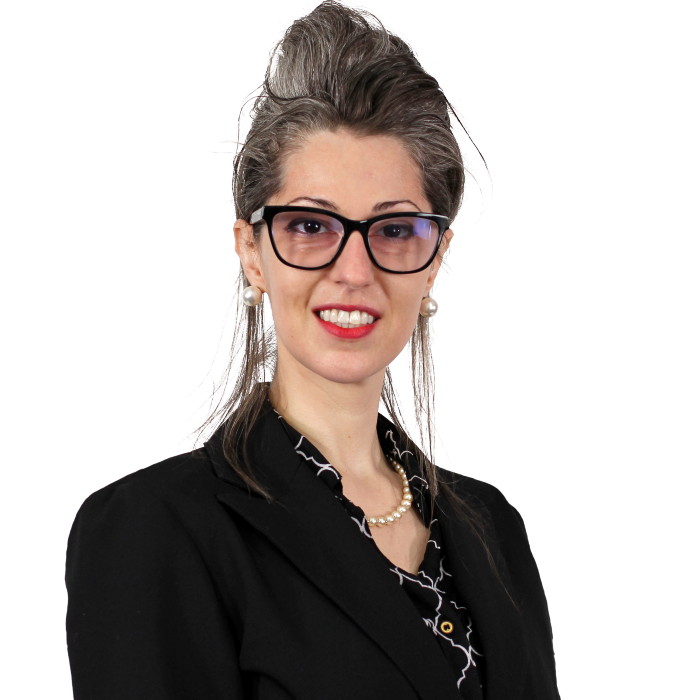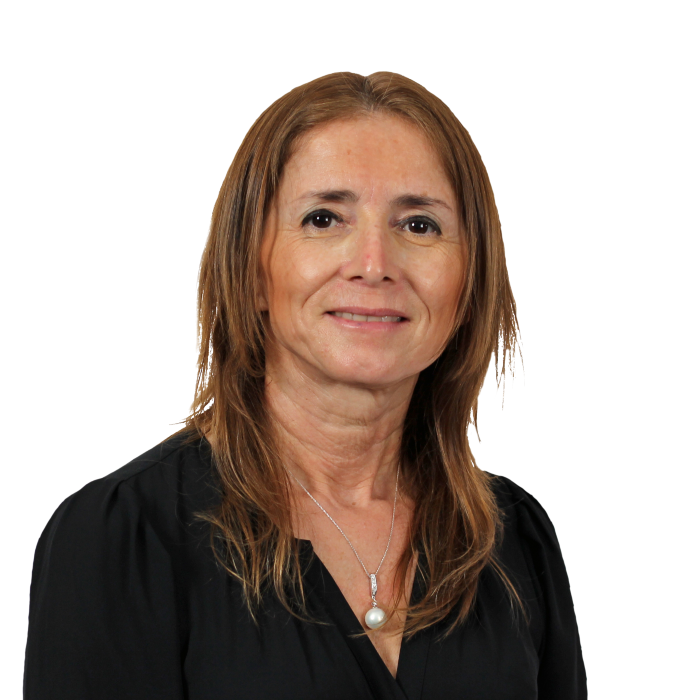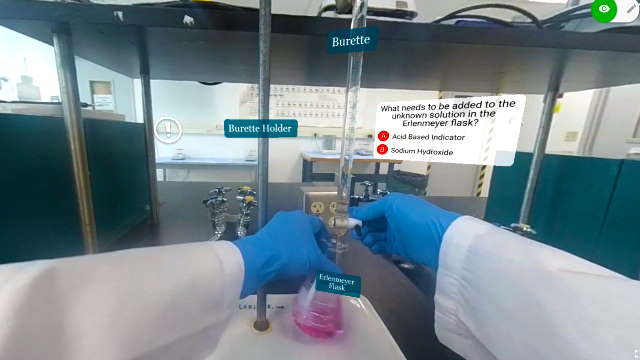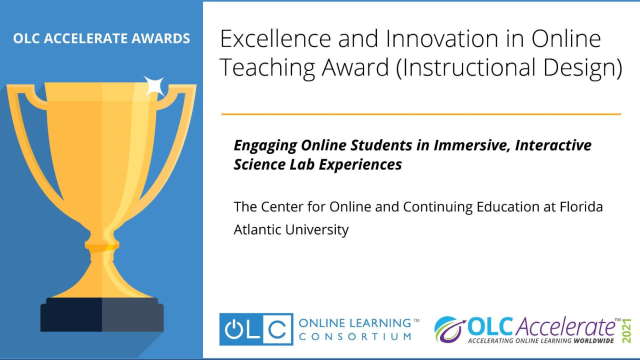
Our Purpose
Increasing agency and empowering effective STEM laboratory and technical learning through faculty for students, building and disseminating the evidence-base for best practices in digital and virtual laboratory learning.
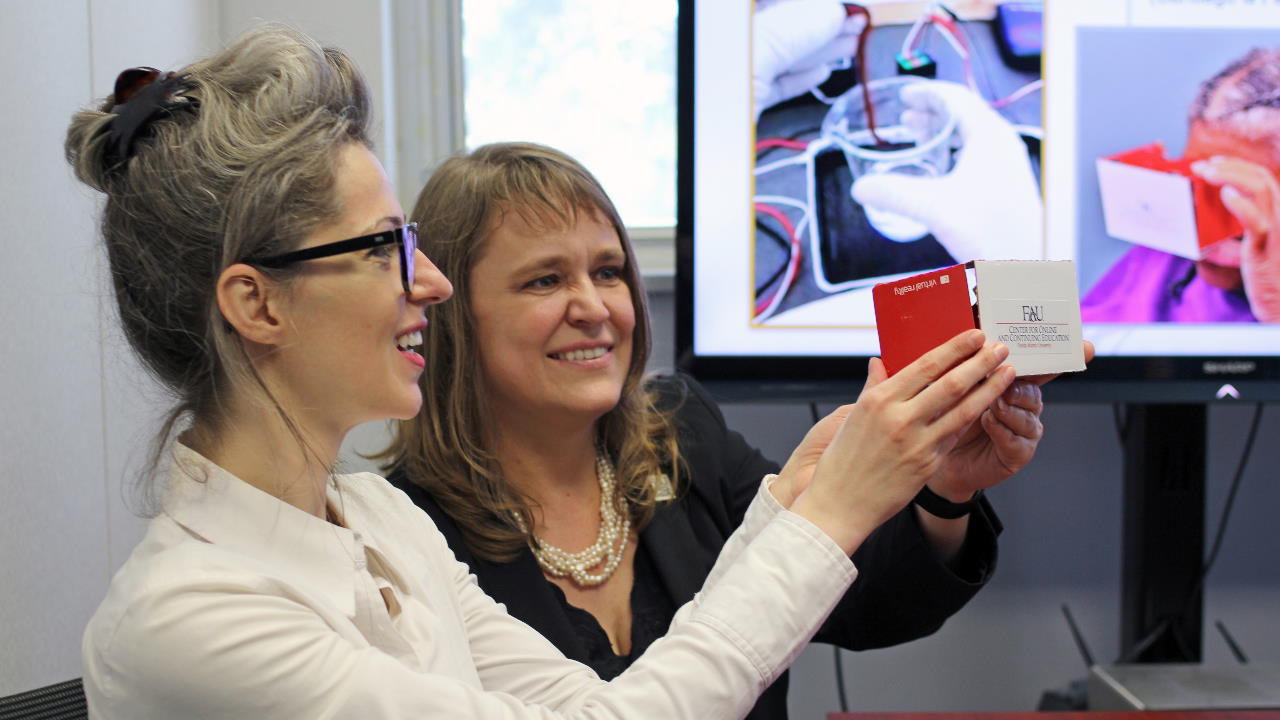
The Research Team
Since 2020, Dr. Evonne Rezler (Senior Associate Dean for Undergraduate Studies Charles E Schmidt College of Science), Dr. Jennifer Krill (University School Assistant Professor of Neurophysiology and the Experiential Research Lab Coordinator for the FAUHS in partnership with Max Planck Academy, and Wilkes Honors College), Dr. Ozlem Yavuz-Petrowski (Lab Coordinator, Chemistry and Biochemistry Department), Dr. Julie Golden Botti (Assistant Provost, Center for Online and Continuing Education) and Dr. Abigail Perkins (Manager of Education Research and Digital Learning Strategies, Center for Online and Continuing Education), have been working together as part of the FAU STEM Research Group for Digital Laboratory Learning . Each research team member contributes a unique skill set and experience to the group in educational research analysis, assessment, pedagogical innovations, online program development, and content expertise in STEM.
Research Goals
-
Identifying, investigating/researching, and developing novel digital and virtual approaches to improve science laboratory and technical learning for STEM courses.
-
Building and disseminating the evidence-base for best practices in digital and virtual science laboratory and technical learning.
-
Increasing agency and empowering effective laboratory and technical learning in STEM
-
through faculty: by providing educators with resources and tools to improve laboratory learning, and by expanding modality choices for the delivery of high-quality course content and technical training.
-
for students: by providing increased access to high quality science learning opportunities through a variety of digital and virtual modalities of delivery of science laboratory course content and technical training.
-
Current Research
Immersive Online Content is interactive course instructional material and media, woven together and aligned with learning objectives, for the augmentation of digital learning experiences directed toward authentic engagement and agentic participation. We are researching and developing avenues to achieve, implement, iteratively improve, futureproof, and share our Immersive Online Content Approach©. Our main focus is enhancing developed proof-of-concepts within a foundation of Quality MattersTM and continual integration of varying levels of Immersive Online Content for online laboratory course and more. Additional areas of focus include: data strategizing for such a novel research endeavor; curating and continually updating approaches for faculty, administrators, instructional designers, and anyone interested in utilizing the Immersive Online Content Approach© on a cost spectrum from least costly and free to top-of-the-line standards of operations. As our research, development, and analysis grows, we also are creating a “How to Manual: The Immersive Online Content Approach”© for local, regional, state, national, and global audiences for faculty and Teaching Assistants standardized inquiry-based training, flexible enough for any STEM domain and beyond!
To date our research efforts have focused on developing, implementing, and evaluating a novel digital instructional/learning approach that utilizes immersive online content (IOC) in the Neurophysiology and General Chemistry 1 practical laboratory courses at Florida Atlantic University. Our aim is to investigate the effectiveness of this digital (online) learning approach versus traditional in-person hands-on learning for students learning outcomes such as key technical skills and course concepts. We are actively applying for National Science Foundation funding in the Improving Undergraduate STEM Education (IUSE) program and we are disseminating our progress to date in various fora, including: at the Meaningful Living and Learning in a Digital World Conference at University of West Georgia, Georgia (March 2022); Learning Design and Technology Forum at Lynn and Anderson Universities, Florida (June 2022); and Biennial Conference on Chemical Education at Purdue University, Indiana (August 2022).
In the News
Upcoming Presentations
- TBA
Past Presentations
- Perkins, A. C., Golden J. B., Rezler, E., Krill, J., & Yavuz-Petrowski, O. (2025, April 4). The power of collaboration: Building digital learning environments for higher education. Conference on Learning and Student Success, American Association of Colleges and Universities, San Juan, Puerto Rico, USA.
- Krill, J., Yavuz-Petrowski, O., Rezler, E., Golden, J. B., & Perkins, A. C. (2024, Sept 30). Digital laboratory learning. Schmidt College of Science Teaching Forum, Florida Atlantic University, Boca Raton, FL, USA.
- Yavuz-Petrowski, O., Rezler, E., Krill, J., Golden Botti, J., & Perkins, A. (2024, July 28).Implementation of IOC training course for graduate teaching assistants (GTAs) to improve consistency, efficiency, and pedagogy. Biennial Conference on Chemical Education, University of Kentucky, Lexington, KY, USA.
- Krill, J., Rezler, E., Yavuz-Petrowski, O., Golden, J. B., & Perkins, A. C. (2024, March 18). Cultivating Possibilities in STEM Education: Integrating Virtual Reality and Artificial Intelligence in Distance Learning Labs Using the Immersive Online Content (IOC) Approach. Teaching With Technology Showcase, Florida Atlantic University, Boca Raton, FL, USA.
- Golden, J. B., Krill, J., Marques, O., Perkins, A. C., Rezler, E., & Yavuz-Petrowski, O. (2023, November 3). Creating STEM Labs with Virtual Reality and Artificial Intelligence: An Open Discourse on Improving Student Success. Transforming STEM Higher Education Conference, American Association of Colleges and Universities, Arlington, VA, USA.
- Golden, J. B., Perkins A. C., Rezler, E., Yavuz-Petrowski, O., & Krill, J. (2023, March 30). Digital solutions on effective educational ecosystems in STEM laboratory courses: Designing, developing, implementing, and researching the Immersive Online Content Approach. Florida Online Innovation Summit, University of Central Florida, Orlando, FL, USA.
- Rezler, E., Golden, J. B., Krill, J., Yavuz-Petrowski, O., & Perkins, A. C. (2023, March 30). Bridging practice and research with immersive online content thought leaders: An open discourse in STEM laboratory digital learning environments. Panel at the Florida Online Innovation Summit, University of Central Florida, Orlando, FL, USA.
- Golden, J. B., Perkins A., Rezler, E., Yavuz-Petrowski, O., & Krill, J. (2022, November 8). Immersive interactivity in online science laboratory courses: Designing effective educational ecosystems. Quality Matters Connect Conference, Tucson, AZ, USA.
- Rezler, E., Golden, J. B., Krill, J., Yavuz-Petrowski, O., & Perkins, A. (2022, September 26). STEM labs with Immersive Online Content: Practitioner perspectives and DIY resources [Video]. Youtube. Professional development webinar, Center for Online and Continuing Education, Florida Atlantic University, Boca Raton, FL, USA.
- Rezler, E., Yavuz-Petrowski, O., Perkins A. C., Golden, J. B., & Krill, J. (2022, August 3). Immersive digital learning in STEM laboratory courses. Biennial Conference on Chemical Education, Purdue University, West Lafayette, IN, United States.
- Perkins A. C., Yavuz-Petrowski, O., Rezler, E., Golden, J. B., & Krill, J. (2022, August 3). The unlimited and innovative world of OER: An interdisciplinary approach to successful chemistry laboratory manual development. Biennial Conference on Chemical Education, Purdue University, West Lafayette, IN, United States.
- Perkins, A. C., Golden, J. B., Rezler, E., Yavuz-Petrowski, O., & Krill, J. (2022, June 16). Using immersive online content to bridge research and practice in the design and delivery of digital learning environments to enhance resilience in the continuity of instruction. Learning Design and Technology Forum, Lynn University, Boca Raton, FL, United States.
- Perkins, A. C., Krill, J., Rezler, E., Golden, J. B., & Yavuz-Petrowski, O. (2022, March 2). An immersive online content approach to authentic science laboratory learning. Meaningful Living and Learning in a Digital World Conference, Savannah, GA, United States.
- Perkins, A. (2020, October 26). Conducting STEM labs online [Video]. Youtube. Professional development webinar, Center for Online and Continuing Education, Florida Atlantic University, Boca Raton, FL. https://www.youtube.com/watch?v=gnsNTKPUWHg&feature=youtu.be
- Perkins, A. C., Yavuz-Petrowski, O., Golden Botti, J., & Alford, N. (2020, October 21). Increasing agentic learning in an online general chemistry for health science laboratory course. STEMpowered Faculty Symposium, University of Florida, virtual.
Publications
-
Yavuz-Petrowski, O. (2021). General Chemistry for Health Sciences lab manual 1: Measurement and graphs for health science (A. Perkins, Center for Online and Continuing Education, Ed.). Florida Atlantic University. CC BY-NC-SA.
-
Yavuz-Petrowski, O. (2021). General Chemistry for Health Sciences lab manual 2: Density (A. Perkins, Center for Online and Continuing Education, Ed.). Florida Atlantic University. CC BY-SA.
-
Yavuz-Petrowski, O. (2022). General Chemistry for Health Sciences lab manual 3: Periodic table and atomic structure (A. Perkins, Center for Online and Continuing Education, Ed.). Florida Atlantic University. CC BY-NC-SA.
-
Yavuz-Petrowski, O. (2021). General Chemistry for Health Sciences lab manual 4: Mixtures and compounds (A. Perkins, Center for Online and Continuing Education, Ed.). Florida Atlantic University. CC BY-NC-SA.
-
Yavuz-Petrowski, O. (2021). General Chemistry for Health Sciences lab manual 5: Gas laws (A. Perkins, Center for Online and Continuing Education, Ed.). Florida Atlantic University. CC BY-NC-SA.
-
Yavuz-Petrowski, O. (2021). General Chemistry for Health Sciences lab manual 6: Concentration and solution preparation (A. Perkins, Center for Online and Continuing Education, Ed.). Florida Atlantic University. CC BY-SA.
-
Yavuz-Petrowski, O. (2021). General Chemistry for Health Sciences lab manual 7: Solutions as transporters in diffusion and osmosis (A. Perkins, Center for Online and Continuing Education, Ed.). Florida Atlantic University. CC BY-NC-SA.
-
Yavuz-Petrowski, O. (2021). General Chemistry for Health Sciences lab manual 8: Spectrophotometry (A. Perkins, Center for Online and Continuing Education, Ed.). Florida Atlantic University. CC BY-NC-SA.
-
Yavuz-Petrowski, O. (2021). General Chemistry for Health Sciences lab manual 9: Acids and bases (A. Perkins, Center for Online and Continuing Education, Ed.). Florida Atlantic University. CC BY-SA.
-
Yavuz-Petrowski, O. (2021). General Chemistry for Health Sciences lab manual 10: Titration (A. Perkins, Center for Online and Continuing Education, Ed.). Florida Atlantic University. CC BY-NC-SA.
-
Yavuz-Petrowski, O. (2021). General Chemistry for Health Sciences lab manual 11: Introduction to organic chemistry (A. Perkins, Center for Online and Continuing Education, Ed.). Florida Atlantic University. CC BY-NC-SA.
-
Yavuz-Petrowski, O. (2021). General Chemistry for Health Sciences lab manual 12: Introduction to biological macromolecules (A. Perkins, Center for Online and Continuing Education, Ed.). Florida Atlantic University. CC BY-NC-SA.
